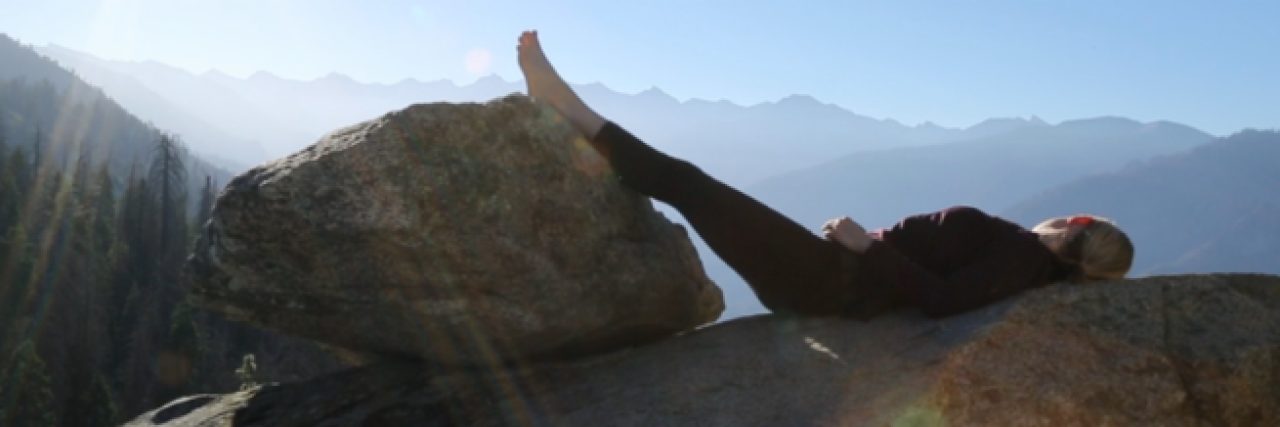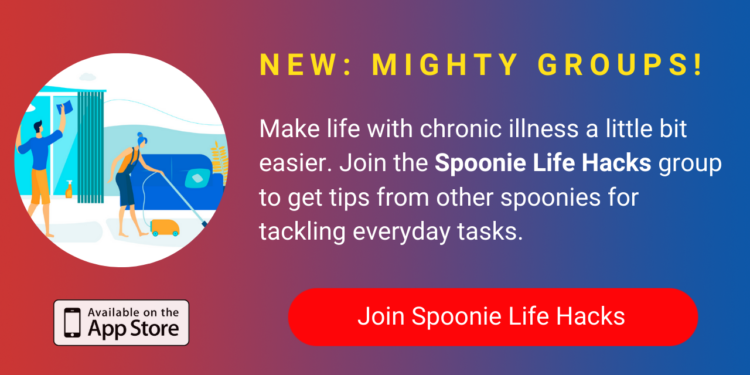How I Find Purpose in Pain When Living With Chronic Illness
Suffering and loss tie us together as a human race. While we all experience different types and levels of pain, we all will experience some form of struggling in our lifetimes.
These experiences affect us. They shape who we become. But we do have a choice in how we ultimately respond to these adverse experiences. We can let them break us or we can use them and seek to find purpose in them and through them.
Becoming part of something bigger than yourself is crucial. For some, it’s faith; for others, it may be a philanthropic cause or a nonprofit organization they’re involved with. Whatever it is, I believe it’s important to get out of yourself and find a way to grow from your struggles. I’m not saying you jump to all of this right away. Certainly not. Take time for yourself to just grieve and process. But somewhere along this journey, you might find there are ways you can use your pain, grief and loss to help others in their walks.
I came up with an acronym (RALLY) to share my own process and to help you find purpose in your pain as well. To me, rally in this context means you are rallying and finding a way to move through your suffering in a meaningful way. Below as I share each step, I’m going to provide some commentary about my process and how having postural orthostatic tachycardia syndrome (POTS) led me to making a documentary.
How to Find Purpose in Your Pain (RALLY)
1. Reflect.
Really spend some time thoughtfully journaling and think about how your struggles have affected your life. How has it changed you? How has it not changed you? Remember that it is OK to not be OK and to be sad. It is also OK for you to be sad about how your life has changed, while also trying to grow from it.
I remember trying to work typical 9-5 corporate jobs out of college and using up all my sick days within the first few months and thinking that this wasn’t how I pictured my career life going.
It’s OK and actually healthy to accept that your situation has changed. In terms of living with an illness, it’s important to recognize that your body may now have limits it didn’t used to. It’s also important to respect your body and yield to its signals that it is overdoing. Focus on finding ways to work around your illness, rather than fight against it.
After receiving an official diagnosis of POTS, I went through a long season of grieving my old self and finally came to a point of acceptance, realizing that life as I knew it may never go back to how it was. I had to become OK with my new normal. Well, of course not totally OK with it, but accepting that this was my situation and saying to myself, OK, now what? Which leads me to the two L’s…
3. Learn and Look.
What do you do well and enjoy? How can you use the talents, abilities and gifts that you are still able to do to help others? How can your pain help you better relate to others? Which groups of people can you best connect with because of your struggles? And therefore, which groups can you best help?
I remember scouring the internet after receiving my official diagnosis of POTS and learning all I could about it. There wasn’t too much out there. My husband and I love to watch documentaries and tried to find one out there about POTS and really couldn’t so we got thinking… how cool would it be to make a documentary to raise awareness about POTS? I have a journalism background and have the condition myself, which allows me to relate to others in the community. My husband does filmmaking. So we thought, maybe this is how we could reach this invisible illness community and help others not to feel so alone. Help other families understand what their loved one goes through a little better and help build more empathy for people struggling with chronic, invisible illnesses.
4. What can you do?
The action step. How and in what situations could you use your experiences and struggling to help others? Do some research and write out some realistic steps you could take to move toward making this happen. Part of this journey might involve finding others who share a common goal and working together for that aim.
We committed and began reaching out to people within the dysautonomia community and as we started hearing back, our journey began and we decided to commit to this project.
Oftentimes, our biggest ministry or mission in life can come out of our suffering. Using your personal experiences and pain to help others is one of the greatest ways we can make an impact in this world and in the lives of others. Don’t waste your struggling. Use it.
For information about our upcoming documentary about POTS, you can visit our website at www.behindthevisiblefilm.com, follow us on Instagram @behindthevisiblefilm, like us on Facebook @behindthevisiblefilm, or follow/tweet at us on Twitter @btvfilm. Our trailer is posted across those platforms and we’ll be keeping you up to date on when and where our film will be released.
Image via contributor


